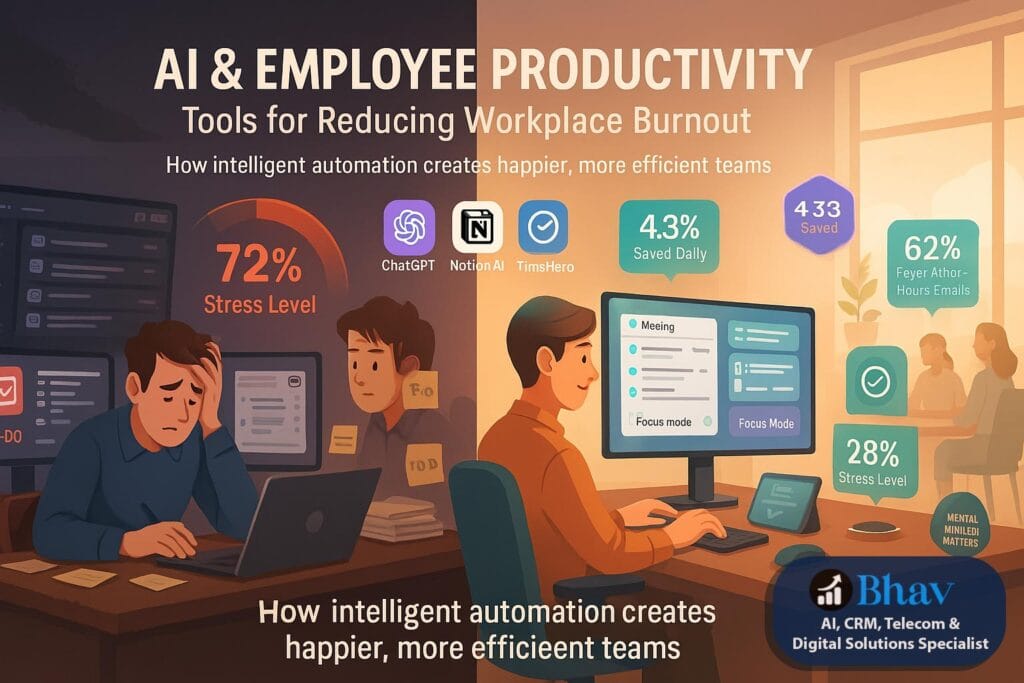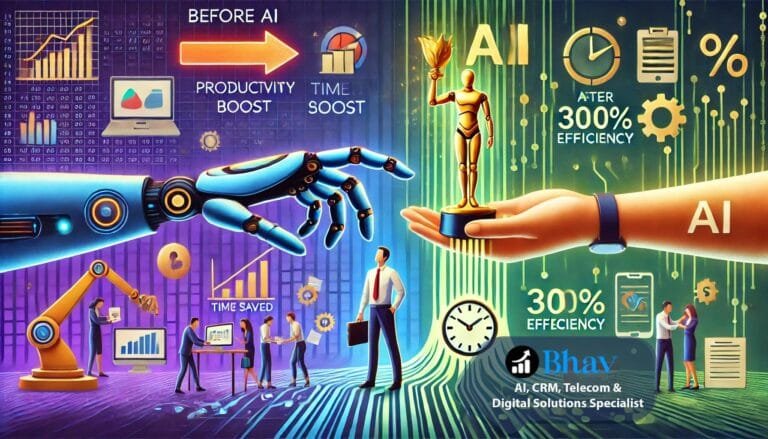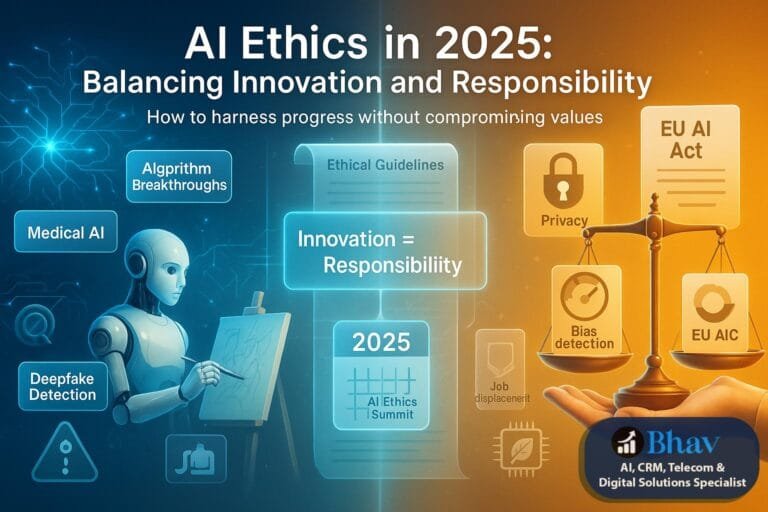
Introduction to Artificial Intelligence
Artificial Intelligence (AI) refers to the simulation of human intelligence processes by computer systems. This encompasses a range of functionalities including learning, reasoning, problem-solving, perception, and language understanding. The concept of AI has evolved significantly since its inception in the mid-20th century, marking a remarkable trajectory of technological advancement.
The term “artificial intelligence” was first introduced in 1956 during a conference at Dartmouth College, which is widely recognized as the birthplace of AI as a academic discipline. Early AI research focused on problem-solving and symbolic reasoning, paving the way for significant achievements. Milestones in the evolution of AI include the development of expert systems in the 1970s and 1980s, which demonstrated the capability of machines to mimic human decision-making processes in specialized fields.
As we moved into the 21st century, the focus of AI research expanded to incorporate machine learning, a subset of AI that enables systems to learn from data and improve their performance without explicit programming. This transition marked the emergence of narrow AI, which is designed to perform specific tasks, such as facial recognition or language translation. In contrast, general AI refers to the theoretical ability of a machine to understand and reason across a broad range of tasks, akin to human intelligence.
Moreover, advancements in neural networks and deep learning have further propelled the capabilities of AI technologies. These techniques have facilitated remarkable progress in diverse applications, ranging from autonomous vehicles to virtual assistants. While there are many opportunities associated with AI, there is also a need to address the ethical and societal challenges posed by its widespread adoption. Understanding the definition, historical context, and classifications of AI provides a foundational framework for exploring its complexities and implications more deeply.
Current Trends in AI Technology
Artificial Intelligence (AI) continues to evolve rapidly, with significant advancements seen across various domains. Among the most prominent trends in AI technology is the remarkable progress in machine learning algorithms. These algorithms have enhanced the ability of systems to learn from data, leading to improved decision-making capabilities. In industries such as healthcare, machine learning is employed to analyze patient data and predict potential health risks, allowing for timely interventions and personalized treatment plans.
Natural language processing (NLP) is another area witnessing substantial advancements. This technology enables machines to understand and interpret human language, facilitating more intuitive interactions between humans and computers. In the finance sector, NLP tools are utilized to analyze market sentiment through news articles and social media, empowering traders to make informed decisions based on the prevailing market mood. Additionally, chatbots powered by NLP are transforming customer service, providing instant support and resolving queries efficiently.
Computer vision is also making notable strides, particularly in the realm of autonomous vehicles and security. Through computer vision, machines can interpret visual information from the world around them, enabling self-driving cars to navigate their environments safely. Furthermore, organizations are employing computer vision to enhance security measures, employing facial recognition and anomaly detection systems. This technology is applied in various settings, from airports to supermarkets, improving safety and operational efficiency.
Moreover, as AI technology continues to mature, its integration into industries beyond traditional tech realms has become increasingly common. The retail sector, for instance, utilizes AI for inventory management and personalized shopping experiences. As we move forward, the interplay between these AI advancements and their real-world applications will undoubtedly shape various sectors, spotlighting the transformative power of artificial intelligence.
The Role of AI in Different Industries
Artificial Intelligence (AI) is rapidly transforming various industries by introducing innovative solutions that enhance operational efficiency and decision-making processes. In sectors such as manufacturing, AI technologies facilitate smarter production lines and automation, thereby optimizing resource allocation and reducing operational costs. Manufacturers harness AI-driven robotics and machine learning algorithms to predict maintenance needs and streamline workflows, resulting in higher output and less downtime.
In the retail industry, AI’s impact is distinctly visible through personalized customer experiences and inventory management. Retailers utilize AI algorithms to analyze consumer behavior, enabling tailored marketing strategies and optimized product recommendations. Furthermore, AI systems enhance supply chain management by predicting demand fluctuations and assisting in stock replenishment, which ultimately increases customer satisfaction and drives sales growth.
Education is another sector witnessing a significant AI-driven transformation. With the implementation of intelligent tutoring systems and personalized learning platforms, AI is providing educators and students with resources tailored to individual learning styles. This adaptability allows for more effective teaching methods and fosters an engaging learning environment. Institutions are also utilizing AI to analyze student performance data, identifying those in need of additional support and thus enhancing overall academic outcomes.
Across these industries, the benefits of adopting AI solutions are substantial. Companies are experiencing increased efficiency, as AI systems automate routine tasks and provide actionable insights for better decision-making. The versatility of AI applications allows for continuous improvements, enabling organizations to stay competitive in an ever-evolving market landscape. Overall, the integration of AI in various sectors illustrates its potential to revolutionize industries by enhancing productivity and driving innovation.
Ethical Considerations in AI Development
The rapid progression of artificial intelligence (AI) technology has ushered in numerous advancements, yet it simultaneously raises significant ethical considerations. One of the foremost concerns is bias within AI systems. Algorithms, often trained on historical data, can inadvertently perpetuate existing inequalities. The implications of biased AI can affect various sectors, including hiring practices, law enforcement, and healthcare, thereby exacerbating social disparities. Hence, identifying and mitigating bias in AI systems is crucial for promoting fairness and equity.
Privacy is another paramount ethical concern in the realm of AI development. As AI technologies rely heavily on data collection and analysis, the potential for misuse of personal information increases. The advent of machine learning algorithms has necessitated a profound examination of data privacy laws, urging developers to adopt robust safeguards to protect individuals’ rights. Striking a balance between utilizing data for AI innovation and respecting personal privacy rights must remain a priority as technology progresses.
Accountability in AI development also plays a pivotal role in ensuring that ethical standards are met. As machines evolve to make autonomous decisions, establishing clear mechanisms for accountability becomes increasingly complex. Determining responsibility when AI errors occur, such as in autonomous vehicles or medical diagnostics, necessitates well-defined regulatory frameworks. These frameworks should outline who’s accountable—the developers, users, or the AI itself—to provide clarity in cases of malpractice or harm.
The importance of responsible AI development cannot be overstated. As AI continues to advance, the creation of comprehensive regulatory frameworks will be essential in guiding ethical practices. Ensuring that AI systems are developed with considerations of bias, privacy, and accountability in mind will ultimately lead to more equitable technological advancements. These efforts are needed to foster public trust and ensure the societal benefits of AI are realized while minimizing potential harms.
Challenges Facing AI Implementation
Organizations aiming to leverage artificial intelligence (AI) solutions encounter several significant challenges that can impede successful implementation. One primary hurdle is data quality. Since AI systems heavily rely on large datasets to deliver accurate results, the quality and validity of these data sets become critical. Inaccurate or incomplete data can lead to faulty insights and decisions, thus undermining the investment made in AI technologies. Thus, organizations must prioritize data governance and cleansing processes to ensure that their AI systems are built on solid foundations.
Another challenge arises from the integration of AI solutions with existing systems and infrastructure. Many organizations find their legacy systems incompatible with new AI technologies, making integration complex and potentially costly. As a result, businesses must assess their current infrastructure and consider necessary upgrades or changes to facilitate seamless integration. This process may involve collaboration with IT teams to ensure that the integration is both efficient and effective, allowing AI tools to operate within the established ecosystem.
Furthermore, workforce reskilling represents a significant challenge as well. The introduction of AI may lead to shifts in job roles and responsibilities within organizations. Employees must be adequately equipped with the skills needed to work effectively alongside AI systems. Reskilling initiatives should be designed to address this need, providing training programs that facilitate the transition to a more AI-driven workplace. By investing in continuous education and skill development, organizations can alleviate employee concerns regarding AI adoption while enhancing overall productivity.
While the challenges of implementing AI solutions are substantial, they are not insurmountable. With thoughtful strategies addressing data quality, system integration, and workforce adaptation, organizations can navigate these hurdles and harness the full potential of artificial intelligence.
Future Prospects of Artificial Intelligence
As artificial intelligence continues to evolve, its future prospects present numerous opportunities and challenges across various sectors. One of the most significant advancements anticipated in the coming years is the integration of AI in automation. The ability of AI systems to perform tasks that traditionally require human intelligence is set to revolutionize industries, enhancing efficiency and productivity. For instance, sectors such as manufacturing, logistics, and customer service are likely to witness a surge in automated processes driven by AI technologies, resulting in reduced operational costs and increased output.
Moreover, the societal implications of AI advancements are expected to be profound. With the rise of intelligent machines, there will be notable shifts in workforce dynamics. Jobs that involve repetitive and routine tasks may face obsolescence, while new roles emphasizing creativity, problem-solving, and emotional intelligence may emerge. This transformation necessitates a reevaluation of education and training programs to equip future generations with the skills required in an AI-driven workforce.
In addition to workforce changes, AI is poised to influence our daily lives significantly. Personal assistants, smart home devices, and advanced data analytics will likely become integral to how we operate, enhancing convenience and decision-making processes. However, these advancements bring forth ethical considerations and challenges, including privacy concerns and the potential for bias in AI systems. Striking a balance between innovation and ethical responsibility will be essential as we navigate this rapidly changing landscape.
Ultimately, the future of artificial intelligence holds immense promise, shaping not only the economy but also the very fabric of society. As we look ahead, it is crucial to remain vigilant regarding the implications of AI technologies and ensure they align with human values and societal goals. The journey of AI adaptation will undoubtedly require collaborative efforts across various sectors to harness its full potential while addressing inherent challenges.
AI and its Impact on Job Markets
The influence of artificial intelligence (AI) on job markets across the globe has been profound and multifaceted. Initially, concerns surrounding AI have often centered on job displacement, as automation and machine learning technologies increasingly take over routine tasks traditionally performed by human workers. Industries such as manufacturing, retail, and even certain sectors of services are witnessing substantial changes due to the implementation of AI. However, it is essential to recognize that while specific jobs may be diminished, others are simultaneously being created as a response to new technologies.
As AI continues to evolve, job roles are transforming; positions that require new skills or enhance human capabilities alongside AI are emerging. This shift indicates a demand for roles focusing on AI supervision, data analysis, and ethical considerations surrounding AI implementation. Careers such as AI trainers, data scientists, and ethics compliance officers are examples of new opportunities arising from this technological revolution. Employees and organizations should prioritize upskilling to ensure that they are equipped to adapt to these changes in the job landscape. Reskilling and continuous learning will become integral concepts in an AI-centric workforce.
Furthermore, it is crucial for companies to foster a culture of innovation and adaptation. By investing in training programs that focus on developing skills relevant to AI technologies, organizations can enhance their workforce’s capabilities and resilience against potential job losses. Simultaneously, employees must take proactive steps to embrace lifelong learning to remain competitive in an ever-evolving job market. Collaborative efforts between educational institutions, businesses, and government bodies will play a pivotal role in preparing the workforce to thrive in the digital age.
Building an AI-Friendly Culture
Creating an AI-friendly culture within organizations is essential for the successful integration of artificial intelligence technologies into everyday business practices. An environment that fosters innovation, collaboration, and continuous learning encourages employees to embrace AI as a vital part of their work processes. This transformation begins with leadership, as executives must demonstrate commitment to AI initiatives and lead by example. This can include dedicating resources to AI projects and engaging in discussions about the strategic benefits of AI.
To cultivate an AI-driven workforce, organizations should prioritize training programs that enhance employees’ understanding of AI tools and methodologies. These programs should not only cover technical skills but also emphasize the ethical implications and potential biases involved in AI applications. By doing so, employees will feel more competent and confident in utilizing AI technologies, thus increasing overall productivity. Additionally, fostering a culture of innovation encourages employees to experiment with new AI solutions and consider new approaches to problem-solving.
Collaboration is another key component in nurturing an AI-friendly atmosphere. Cross-functional teams comprising diverse skill sets can provide varied perspectives that enhance the development of AI solutions. Encouraging dialogue among departments allows for the sharing of insights and uncovering potential applications of AI that may not have been previously considered. Furthermore, establishing an open feedback loop will enable employees to express concerns and suggestions about AI technologies, further solidifying their engagement in the process.
Finally, continuous learning should be inherent in an AI-friendly culture. Encouraging employees to seek out new knowledge and skills not only keeps the workforce adaptable to changes in AI technologies but also fuels a strong sense of ownership over the integration process. Organizations that can instill these values are likely to experience the long-term benefits of AI, which include enhanced efficiency, improved decision-making, and a competitive edge in the marketplace.
Conclusion: Embracing the AI Revolution
As we navigate through the evolving landscape of artificial intelligence (AI), it becomes increasingly clear that the integration of these technologies is no longer a distant prospect but a present reality. Throughout this blog post, we have examined various facets of AI, including its trends, challenges, and future outlook. A consistent theme has emerged: the importance of embracing AI as a catalyst for innovation and competitiveness in both personal and professional spheres.
One of the key points discussed is the rapid advancement of AI technologies, which are reshaping industries and creating new opportunities for growth. From automation enhancing productivity to AI-driven analytics providing valuable insights, the benefits of adopting these technologies are substantial. Organizations and individuals alike must recognize that staying ahead in this AI-driven era is pivotal for success. This entails a proactive approach toward learning and adopting AI tools relevant to one’s field.
However, the proliferation of AI also brings forth challenges that cannot be overlooked. Ethical considerations, data privacy issues, and potential job displacement are critical aspects that require thoughtful deliberation. Engaging in open discussions about these concerns is essential, as it empowers stakeholders to address them responsibly and effectively. The future of AI will depend not only on technological advancements but also on society’s ability to navigate these challenges in a manner that promotes equity and inclusivity.
In summary, as we move forward, remaining informed about the developments in artificial intelligence will be vital. Embracing this revolution is essential for fostering innovation and ensuring competitiveness across various domains. It is imperative for individuals and organizations to assess the implications of AI while being adaptable and prepared for the transformations it brings. By doing so, we can collectively harness the potential of artificial intelligence and shape a brighter future.



